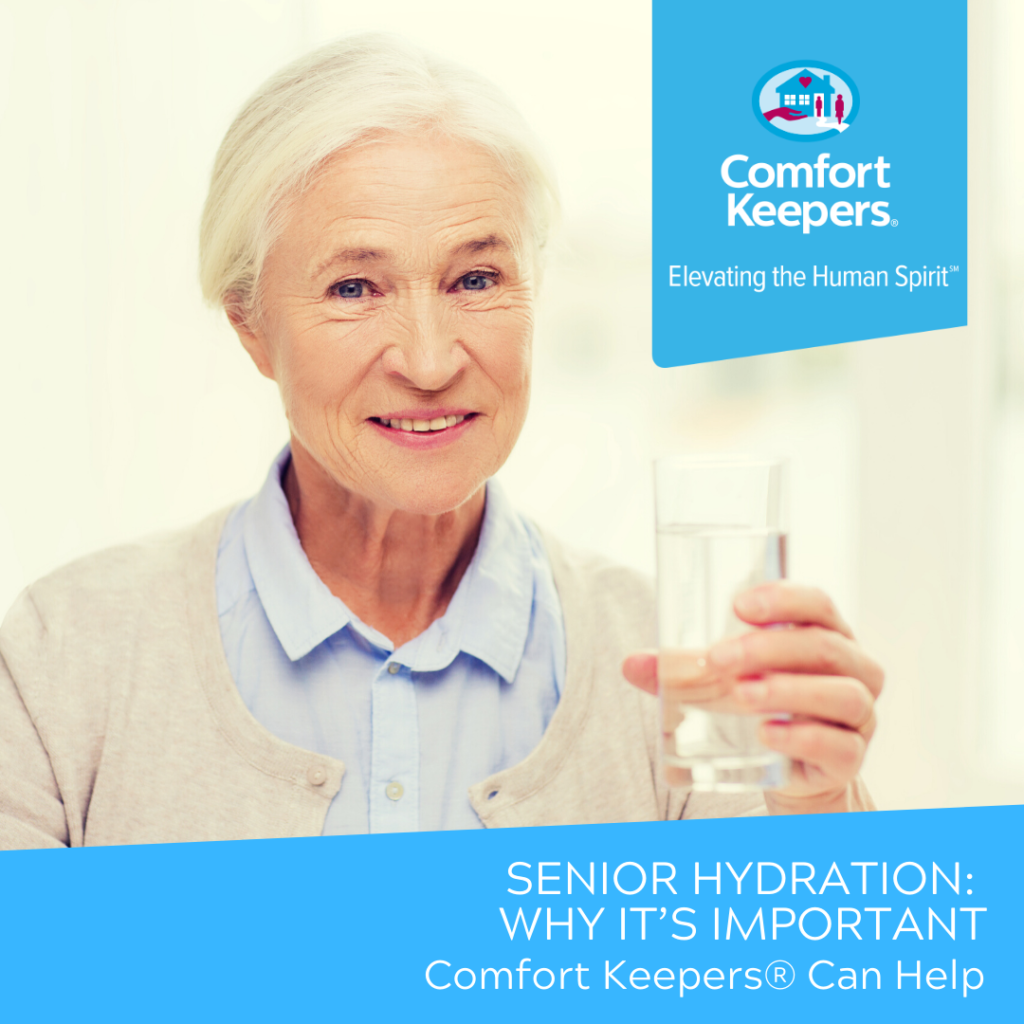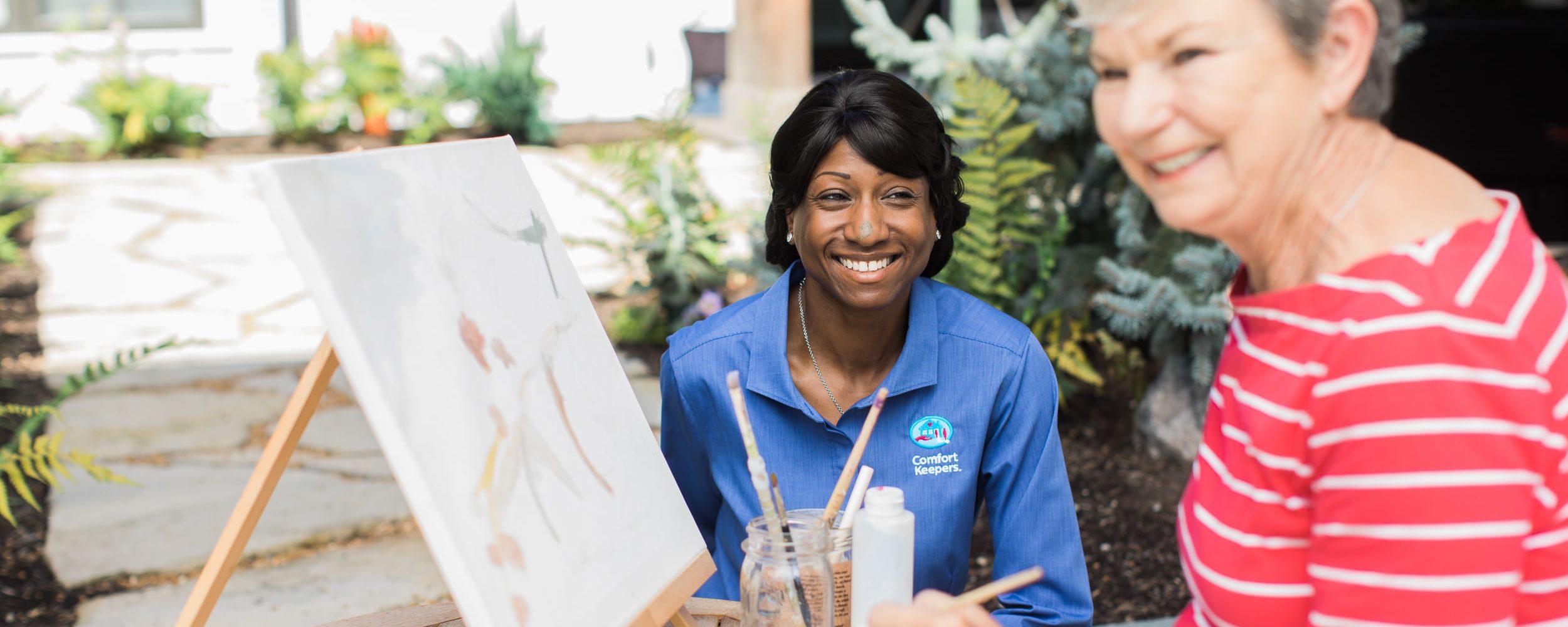Senior Hydration
Preventative Care | August 3, 2020
Senior Hydration: Why It’s Important

Senior Hydration: Why It’s Important | If someone ever asks you what you’re made of, the appropriate response should be, “water.” After all, throughout most of our lives, water makes up more than 50% of our body content – a majority of which is contained inside our cells. And while it may sound like a lot, we’re not exactly great when it comes to holding onto it. Through perspiration, respiration, and urination, we experience an average loss of 70 ounces of water each day. This is, of course, why we replenish our fluids throughout the day. This may not be difficult for young or middle-age adults to do, but it can be trickier for seniors, due to certain age-related factors.
Because of this, seniors are more likely to become dehydrated, and face a greater risk of everything from falling to urinary tract infections, and even kidney failure. In this article, we’ll explore the factors that influence hydration, the health consequences of dehydration, and steps seniors and caregivers can take to reduce the overall risk.
What Impacts Hydration for Seniors?
As mentioned, losing water through biological processes is normal. However, as we age, we tend to lose more than usual because the body’s ability to conserve water diminishes with time. Complicating matters even further, older adults’ thirst signals aren’t as efficient as they once were, making it difficult to know when to drink water. Dehydration can also result from:
- Chronic urinary incontinence
- Limited mobility
- Limited access to clean water
- Difficulty swallowing
- Memory problems
- Medications, such as diuretics
If left unchecked, dehydration can lead to a number of serious problems. In fact, it continues to be noted as one of the most frequent causes of hospitalization among older adults. Immediate problems can include seizures and heat stroke, but over time, dehydration can cause a reduction in blood volume, urinary tract infections (UTIs), pneumonia, and kidney failure. Given the severity of these problems, seniors should certainly recognize the importance of proper hydration, but it’s also critical for them to understand that dehydration is not inevitable.
Hydration Tips for Seniors
Sixty-four ounces of water – or eight 8-ounce glasses if it’s easier to remember – is generally considered the standard when it comes to proper daily intake, but more may be needed depending on prescribed medications or health conditions. Thus, seniors should talk to their physician and adjust accordingly. The tips below will help guide them toward the daily goal:
- Keep water close by and within arm’s reach – as a visual reminder
- Avoid caffeinated beverages or replace with their non-caffeinated counterparts
- Make drinking water enjoyable by making popsicles, frozen juice pops, sorbets, or other hydrating treats
- Drink additional water when taking medication(s)
- Keep a water-drinking schedule so as not to rely solely on thirst
- Eat foods high in water content, such as:
- Soup,
- Yogurt,
- Cucumbers,
- Apples, and
- Blueberries
Comfort Keepers® Can Help
Proper hydration can be one of the primary concerns for family caregivers when it comes to the wellbeing of their loved ones. At Comfort Keepers®, we recognize just how important this is. That’s why our caregivers can help seniors maintain regular hydration schedules and see that they are following the steps above to receive the recommended amount of water each day. In addition, we provide everything from companionship to light housekeeping – all to help improve their quality of life. For more information about how Comfort Keepers can support senior health, safety, and independence, contact the Orangeville location today.
BONUS Article: Senior Health and Wellness
References:
AgingCare. “Hydration Tips for Seniors” by Jennifer Leeflang. Web. 2018.
Hydration for Health Initiative. “Hydration and the Elderly.” Web. 2018.
Better Health While Aging. “Q&A: How to Prevent, Detect, & Treat Dehydration in Aging Adults” by Leslie Kernisan MD MPH. Web. 2016.
Individualized Home Care Options
Long-Term Home Care, 24 Hour Home Care & Short Term Care Options Customized for You







